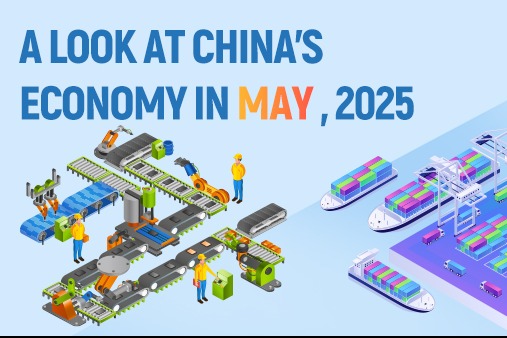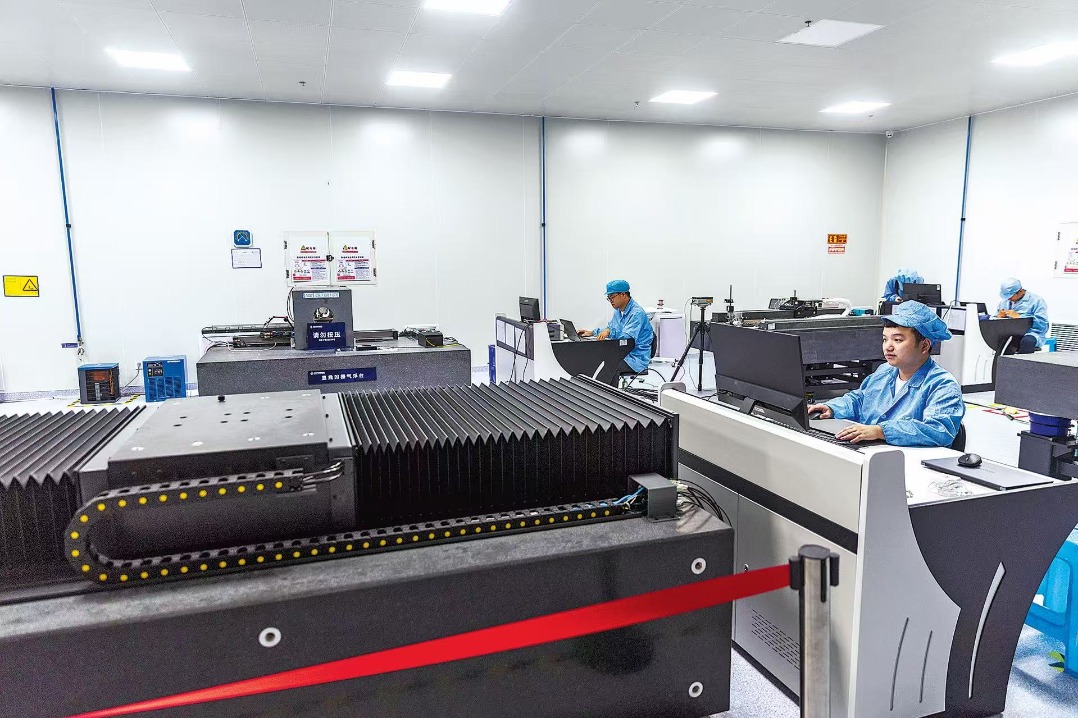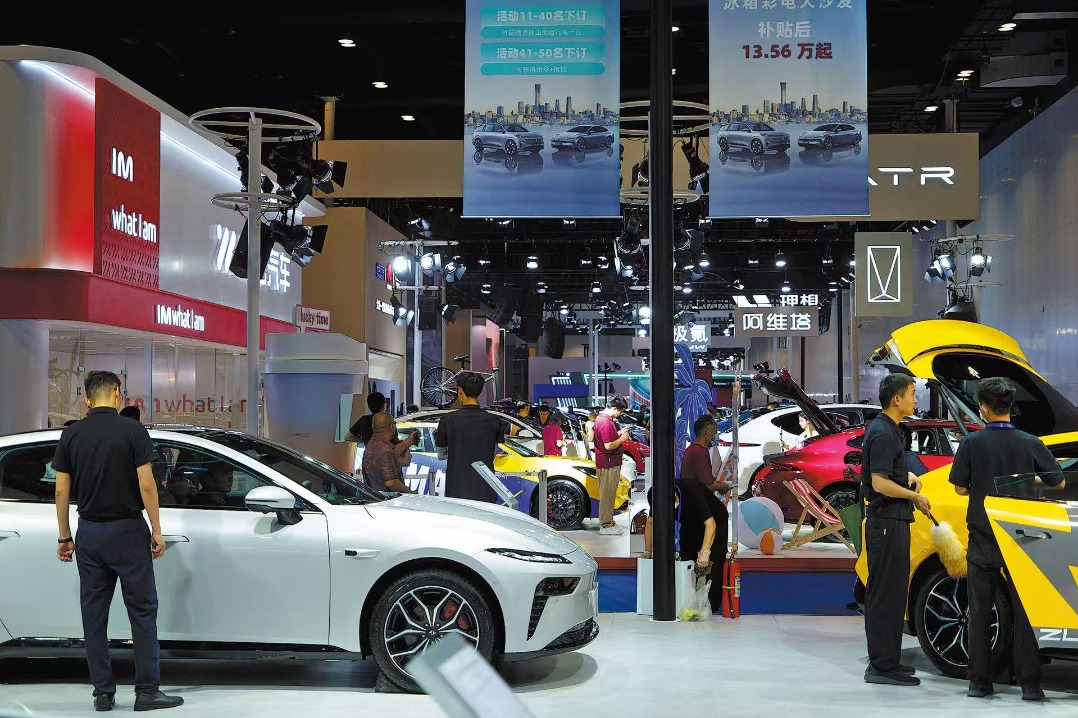Nation in vanguard of global AI advances
Tech's use in wide range of industries a driving force for China's growth

China is at the global forefront of the development and application of fast-evolving artificial intelligence technology, which is vital for bolstering industrial upgrades and will inject new momentum into high-quality economic growth, said experts and entrepreneurs at the 16th Annual Meeting of the New Champions, also known as the Summer Davos, in Tianjin, on Tuesday.
Zhu Min, former deputy managing director of the International Monetary Fund, said China will make great strides in the application of AI technology in the next 18 months to two years, highlighting that the country boasts a huge market of 1.4 billion people and abundant industrial application scenarios, which serve as important advantages for China in AI development.
The deployment of AI in a wide range of industries is becoming an important driving force for China's economic growth, Zhu said, adding that China has surpassed the United States in the number of AI academic papers issued, taking the top spot worldwide, and such papers increasingly focus on the specific industrial application of AI.
When asked about whether AI will replace jobs, Zhu said the future employment structure will be transformed, and all simple and repetitive work will be replaced. "The entire employment system will undergo a fundamental structural change, rather than a change in the total number of jobs."
He said China's services sector, technology and AI have huge growth potential, with future employment to take place in these emerging fields, adding that it is of great significance to strengthen retraining in the job market and letting people know how to best use AI.
Karel Eloot, senior partner of McKinsey & Company, said China has good technological infrastructure in terms of digitalization and AI, and has developed a world-class business-to-consumer (B2C) ecosystem for many years, laying a very strong foundation for further innovation to build upon.
"Chinese companies have been very open to experiment with new things so that they could learn very fast. That is evident," Eloot said, adding that Chinese firms are at the forefront of digital analytics and technology transformation.
He said generative AI is very important for the future development of "lighthouse factories", which represent the highest level of global intelligent manufacturing. Moreover, the collaboration between human beings and robots is critical to build more advanced manufacturing plants.
"Technology will augment people, not replace people."
As fast-developing AI technology is integrating into every facet of industrial development and people's lives, the country has recognized AI as essential to fostering new quality productive forces and building up momentum for new growth drivers.
This year's Government Work Report stated that under the AI Plus initiative, China will work to effectively combine digital technologies with its manufacturing and market strengths. The country will support the extensive application of large-scale AI models, and vigorously develop new-generation intelligent terminals and smart manufacturing equipment, the report said.
The application of AI in the high-tech manufacturing sector will bring about greater value than its use in terminal products, as this cutting-edge digital technology will significantly enhance the efficiency and competitiveness of manufacturing, said Li Dongsheng, founder and chairman of Chinese consumer electronics maker TCL Technology Group Corp.
Li said China's breakthroughs in large language models, and the meteoric rise of Chinese AI startup DeepSeek, have enabled China to rapidly catch up with the US in the AI domain, while China has surpassed most developed countries in the application of AI.
Maxwell Zhou, CEO of Deep-Route.ai — a Chinese company engaged in developing and deploying smart driving solutions — is bullish on the prospects of the adoption of AI tech and large language models in autonomous driving vehicles.
More than five types of vehicles integrated with the company's vision language action (VLA) model are expected to achieve mass production this year. VLA is a multimodal model that combines vision, language and action to enhance vehicles' smart driving capabilities.
Zhou said computing power, data and algorithms are the three engines behind VLA's evolution, adding that this model is the foundation of smart driving and stands as one of the most promising paths toward fully autonomous driving.




































